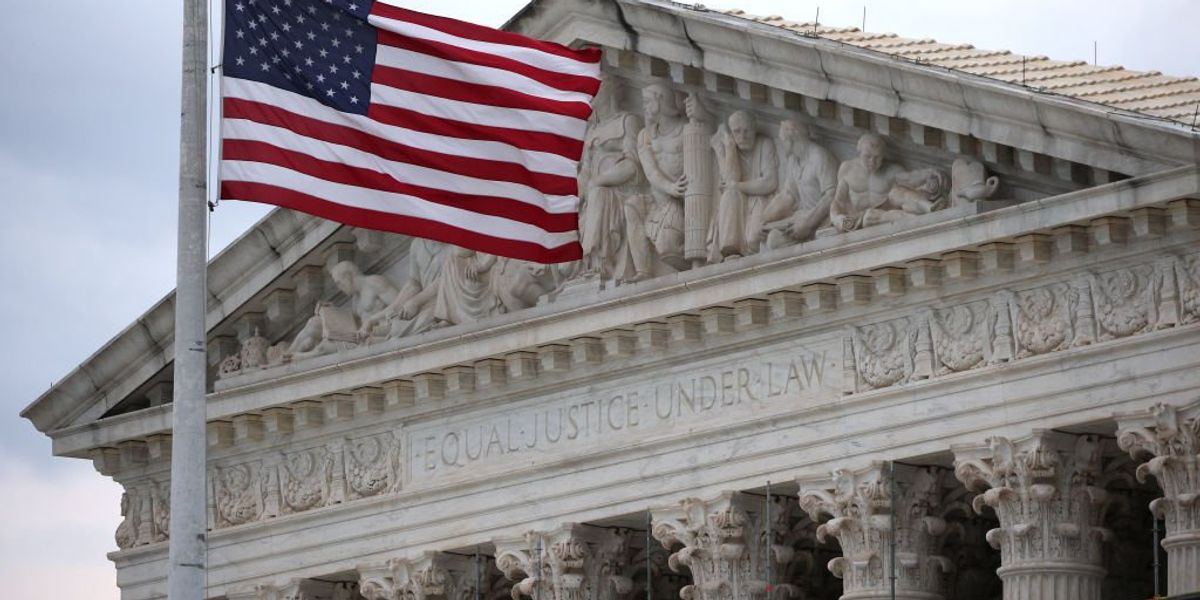Nationwide injunctions — once unknown in American legal tradition — have exploded in popularity, driven by single federal district court judges eager to block policies enacted by the political branches. Supreme Court justices appointed by presidents of both parties have raised alarms about the trend.
Justices Clarence Thomas, Samuel Alito, Neil Gorsuch, Brett Kavanaugh, and Amy Coney Barrett have criticized these injunctions in written opinions. Chief Justice John Roberts and Justice Elena Kagan have raised similar concerns in public comments. In the 2018 Trump v. Hawaii decision, Thomas called them “legally and historically dubious.” Speaking at a Ninth Circuit judicial conference, Kagan reportedly remarked, “It just can’t be right that one district judge can stop a nationwide policy in its tracks and leave it stopped for the years that it takes to go through the normal process.”
The question before the court is fundamental: Do elections matter, or do lower-court judges run the country?
Solicitors general from both parties have also objected. Joe Biden’s solicitor general, Elizabeth Prelogar, warned last year that nationwide injunctions cause “substantial disruption” to executive functions. Acting Solicitor General Sarah Harris earlier this year called them an “epidemic.”
The Supreme Court will now decide whether these bipartisan objections reflect genuine constitutional concerns — or partisan convenience. Take Mary McCord, for example. A former Obama White House official and adviser to the January 6 Committee, she co-signed the respondents’ brief defending the nationwide injunctions in this case. But would she have supported them when courts used them against her own administration?
The Supreme Court will hear arguments Thursday in Trump v. CASA, Inc., along with the related cases Trump v. Washington and Trump v. New Jersey. At issue is the Trump administration’s “modest request” to limit the scope of nationwide injunctions issued by district judges in Maryland, Massachusetts, and Washington state. These injunctions blocked enforcement of the president’s day one executive order on birthright citizenship, even before courts ruled on the legal merits.
(Full disclosure: I submitted a brief in the case on behalf of the Claremont Institute’s Center for Constitutional Jurisprudence, urging the court to restore the original meaning of the 14th Amendment — one that excludes both temporary visitors and illegal immigrants from automatic citizenship.)
The case against universal injunctions follows directly from the Constitution. Article III, Section 2 limits judicial power to “cases or controversies,” designed to resolve disputes between parties, not to dictate national policy. Nationwide injunctions go well beyond the plaintiffs and defendants involved.
Article III, Section 1 vests judicial authority in the Supreme Court and “such inferior courts as the Congress may from time to time ordain and establish.” District courts possess geographically defined jurisdictions. A single federal judge in, say, Maryland or Washington state was never meant to issue rulings that bind the entire country.
Nationwide injunctions routinely disrupt government operations. Different district courts can issue conflicting injunctions, creating legal chaos and making compliance virtually impossible. That’s exactly what happened in 2022 after the Supreme Court’s Dobbs decision overturned Roe v. Wade. Judge Matthew Kacsmaryk of the Northern District of Texas issued a nationwide injunction blocking the FDA’s approval of mifepristone, a common abortion drug. Just hours later, Judge Thomas Rice in the Eastern District of Washington issued a competing order — this one prohibiting the FDA from altering its approval of the same drug in half the country.
RELATED: Injunction dysfunction or tyrant disruption? Trump-era judicial paralysis explained
designer491 via iStock/Getty Images
These injunctions also fuel rampant forum-shopping. Predictably, left-leaning jurisdictions like Massachusetts, Maryland, and Washington state produced most of the nationwide injunctions during the Trump presidency — just as Texas courts served that role under Obama and Biden. Chief Justice Roberts and Justice Kagan have both warned about this manipulation. Members of Congress, legal scholars, the American Bar Association, and even the Judicial Conference of the United States have proposed random judge assignments for cases that could result in nationwide injunctions.
Such reforms might reduce forum-shopping, but they do not fix the underlying constitutional defects.
If the court agrees with the Department of Justice and narrows the injunctions to the actual parties in the case, it must still define who counts as a party. Will that include only the named plaintiffs? Or will it extend to entire state populations listed as plaintiffs — or worse, activist groups claiming to represent all their members?
If the court accepts either of the latter definitions, it effectively reauthorizes nationwide injunctions under a different name. That outcome seems unlikely. The court will likely stop short of endorsing such a sweeping expansion of lower-court power and instead point to the existing class-action mechanism already embedded in federal rules.
Whatever the court decides, the consequences will ripple through the hundreds of lawsuits filed against the president’s executive actions. At stake is nothing less than the legitimacy of the last election — and whether unelected district judges can override the policies chosen by the American people. The question before the court is fundamental: Do elections matter, or do lower-court judges run the country?
Read the full article here







![GOP Takes Back California’s ‘Surf City USA’ in Strong Rebuke of ‘Newsom and His Policies’ [WATCH] GOP Takes Back California’s ‘Surf City USA’ in Strong Rebuke of ‘Newsom and His Policies’ [WATCH]](https://www.lifezette.com/wp-content/uploads/2025/11/2025.11.02-09.13-lifezette-690720a8a33d4.jpg)




